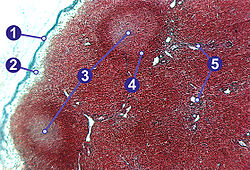 Acetaminophen, aspirin, ibuprofen, naproxen: More than 80% of us report using these four main over-the-counter analgesics, according to the market research firm Mintel. Two-thirds of us keep stashes on hand, not just at home but also at work, in our handbags or in the car. And about half of us have multiple bottles available, just in case.
Acetaminophen, aspirin, ibuprofen, naproxen: More than 80% of us report using these four main over-the-counter analgesics, according to the market research firm Mintel. Two-thirds of us keep stashes on hand, not just at home but also at work, in our handbags or in the car. And about half of us have multiple bottles available, just in case.
All that pill popping certainly affects our health — and not always for the better. Used correctly, over-the-counter analgesics can help with acute aches and pains. Even more enticing, growing evidence suggests that some of them might also help fight Alzheimer's and Parkinson's disease, as well as heart attacks and some cancers.
Frequent use of over-the-counter painkillers carries real risks
Rare disease or not, Colorado teen can't have medical pot at school, not even a lozenge
 A Colorado teen with a rare neurological disease wants to do two things: Take the medical marijuana he needs to control his seizures and attend high school. Sounds simple, but, of course, it's anything but.
A Colorado teen with a rare neurological disease wants to do two things: Take the medical marijuana he needs to control his seizures and attend high school. Sounds simple, but, of course, it's anything but.
The drama playing out between the student and the school likely has little to do with the boy's disease -- described as diaphragmatic and axial myoclonus -- and more to do with the zero-tolerance policy regarding medical marijuana.
Study: Tiny LED holiday bulbs contain lead, arsenic
 Small holiday LED bulbs, marketed as eco-friendly alternatives to traditional light bulbs, contain lead, arsenic and a dozen other potentially hazardous substances, reports a study released Thursday.
Small holiday LED bulbs, marketed as eco-friendly alternatives to traditional light bulbs, contain lead, arsenic and a dozen other potentially hazardous substances, reports a study released Thursday.
The low-intensity red LEDs (light emitting diodes) in Christmas lighting strands had up to eight times the amount of lead allowed under California law, and while the white bulbs had less lead than the colored ones, they had high levels of nickel, according to a team of researchers at the University of California, Irvine, and the University of California, Davis.
Test gets almost 1 in 5 syphilis cases wrong
 Hundreds of people may have been told they tested positive for syphilis when they didn't actually have the disease, health officials say. A study of five U.S. labs shows about 18 percent of the positive results from a test method used since the 1980s were actually negative, the Centers for Disease Control and Prevention said Thursday.
Hundreds of people may have been told they tested positive for syphilis when they didn't actually have the disease, health officials say. A study of five U.S. labs shows about 18 percent of the positive results from a test method used since the 1980s were actually negative, the Centers for Disease Control and Prevention said Thursday.
Experts previously thought the statistic was much lower - under 7 percent. The CDC recommends additional testing when this particular test gives a positive result. But even if most doctors retest, the new research suggests that some people have unnecessarily worried they were infected with an infamous sexually transmitted disease.
Diet soda may be tied to heightened risk of stroke, study claims

Soft drinks of any kind, diet or sugary, are linked to several health problems.
A Birth-Defect Breakthrough: Prenatal Spinal Surgery
 It's a landmark in the controversial, 30-year-old field of fetal surgery: Surgeons are reporting success in treating a common, serious birth defect called spina bifida — before birth.
It's a landmark in the controversial, 30-year-old field of fetal surgery: Surgeons are reporting success in treating a common, serious birth defect called spina bifida — before birth.
Spina bifida is a hole in the spine that sometimes allows a loop of the naked spinal cord to protrude outside the body. Such neural-tube defects are down 30 percent because more expectant mothers are taking folic acid pills and dietary supplements. But about 1,500 babies are born with spina bifida every year, and many are destined to have severe lifelong disabilities.
Lymph Node Study Shakes Pillar of Breast Cancer Care
 A new study finds that many women with early breast cancer do not need a painful procedure that has long been routine: removal of cancerous lymph nodes from the armpit.
A new study finds that many women with early breast cancer do not need a painful procedure that has long been routine: removal of cancerous lymph nodes from the armpit.
The discovery turns standard medical practice on its head. Surgeons have been removing lymph nodes from under the arms of breast cancer patients for 100 years, believing it would prolong women’s lives by keeping the cancer from spreading or coming back.
More Articles...
Page 118 of 233

 Health Glance
Health Glance






























